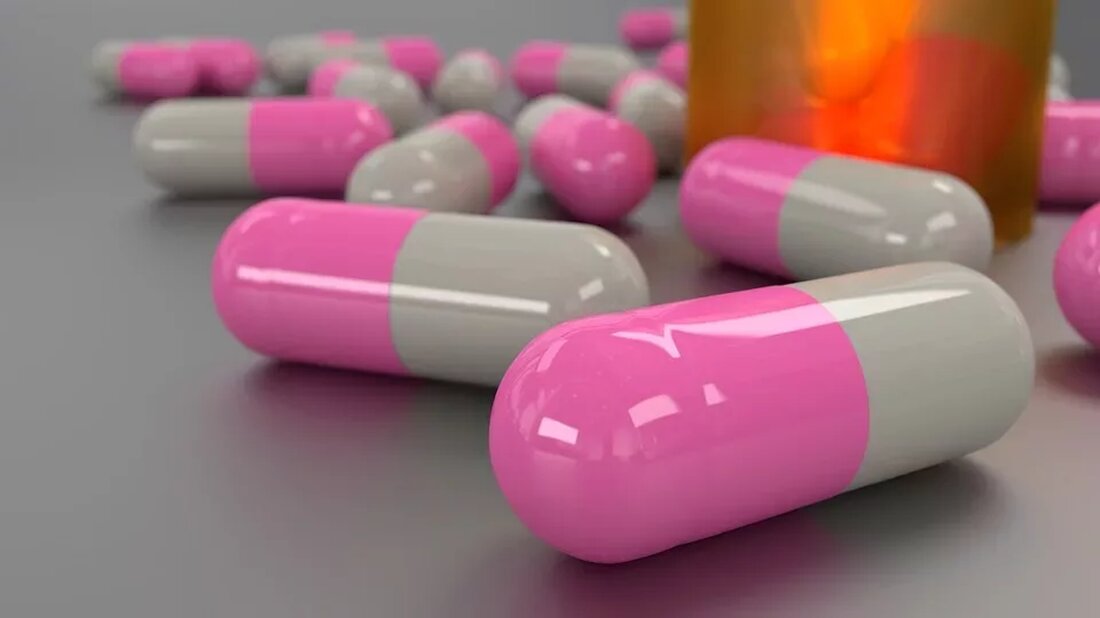Grapefruit Seed Extract: A Natural Antibiotic?
Grapefruit Seed Extract: A Natural Antibiotic? Grapefruit seed extract is often promoted as a natural replacement for antibiotics. But what is behind this claim? In this article, we'll take a closer look at grapefruit seed extract, examine its potential effectiveness as an antibiotic, and examine the scientific evidence behind it. What is grapefruit seed extract? Grapefruit seed extract is obtained from the seeds and peel of grapefruit. It contains a variety of bioactive compounds including antioxidants and flavonoids. These ingredients are said to have antimicrobial properties and therefore serve as a natural antibiotic. History and Uses of Grapefruit Seed Extract Grapefruit seed extract was first developed in the 1970s by Dr. Jacob Harich discovered. Harich claimed that...

Grapefruit Seed Extract: A Natural Antibiotic?
Grapefruit Seed Extract: A Natural Antibiotic?
Grapefruit seed extract is often promoted as a natural replacement for antibiotics. But what is behind this claim? In this article, we'll take a closer look at grapefruit seed extract, examine its potential effectiveness as an antibiotic, and examine the scientific evidence behind it.
What is grapefruit seed extract?
Grapefruit seed extract is obtained from the seeds and peel of grapefruit. It contains a variety of bioactive compounds including antioxidants and flavonoids. These ingredients are said to have antimicrobial properties and therefore serve as a natural antibiotic.
History and Uses of Grapefruit Seed Extract
Grapefruit seed extract was first developed in the 1970s by Dr. Jacob Harich discovered. Harich claimed that grapefruit seed extract has antibacterial, antiviral and antifungal properties. Since then, grapefruit seed extract has been used as a dietary supplement and as an ingredient in skin care products, cleaning products, and even animal products.
The potential antibacterial properties of grapefruit seed extract
The main claim about grapefruit seed extract is its antibacterial effects. It is believed that the bioactive compounds in grapefruit seed extract may inhibit the growth and reproduction of bacteria. Some studies suggest that grapefruit seed extract may actually be effective against certain strains of bacteria.
In vitro studies
In vitro studies in which grapefruit seed extract is exposed to bacteria in a laboratory culture have produced promising results. Researchers have found that grapefruit seed extract can inhibit the growth of pathogenic bacteria such as Escherichia coli (E. coli) and Staphylococcus aureus. However, it is important to note that these results have so far only been obtained under controlled laboratory conditions and further clinical studies are required to confirm their effectiveness in humans.
Clinical studies
To date, there have been only a few clinical studies that have examined the effectiveness of grapefruit seed extract as an antibiotic in humans. However, a 2002 randomized controlled trial found that grapefruit seed extract had comparable effects to a traditional antibiotic in patients with strep throat. It is important to note that this study was small and limited and further research is needed to confirm these results.
How is grapefruit seed extract used?
Grapefruit seed extract can be used in a variety of forms, including liquid drops, capsules, and creams. The recommended dosage may vary depending on the product, so it is important to follow the instructions on the packaging or the recommendation of a doctor or naturopath.
It is recommended that grapefruit seed extract be taken diluted and not applied undiluted to the skin, as it can cause irritation in its pure form. It is also important to consult a doctor or healthcare practitioner before using grapefruit seed extract to avoid possible interactions with other medications or health conditions.
Frequently Asked Questions (FAQs)
Q: Can grapefruit seed extract work against all types of bacteria?
A: There is evidence that grapefruit seed extract may inhibit certain strains of bacteria, but further research is needed to confirm its effectiveness against different types of bacteria.
Q: Are there any possible side effects when using grapefruit seed extract?
A: Grapefruit seed extract is generally considered safe. However, in some cases side effects may occur, such as stomach upset, nausea or allergic reactions. It is important to follow the recommended dosage and consult a doctor before use.
Q: Can grapefruit seed extract replace antibiotics?
A: There is not enough scientific evidence to recommend grapefruit seed extract as a complete replacement for antibiotics. However, it can be considered as a supplement or adjuvant in the treatment of certain infections.
Conclusion
Grapefruit seed extract contains bioactive compounds that could potentially have antibacterial properties. Research to date supports the idea that grapefruit seed extract can inhibit the growth of certain bacteria. However, it is important to note that further clinical studies are needed to confirm its effectiveness and safety in humans.
The use of grapefruit seed extract should always be done in consultation with a doctor or alternative practitioner. It is also important to follow the recommended dosage and be aware of possible side effects. While grapefruit seed extract is considered a potential natural antibiotic, it should not be viewed as a replacement for conventional medical treatments.

 Suche
Suche
 Mein Konto
Mein Konto
